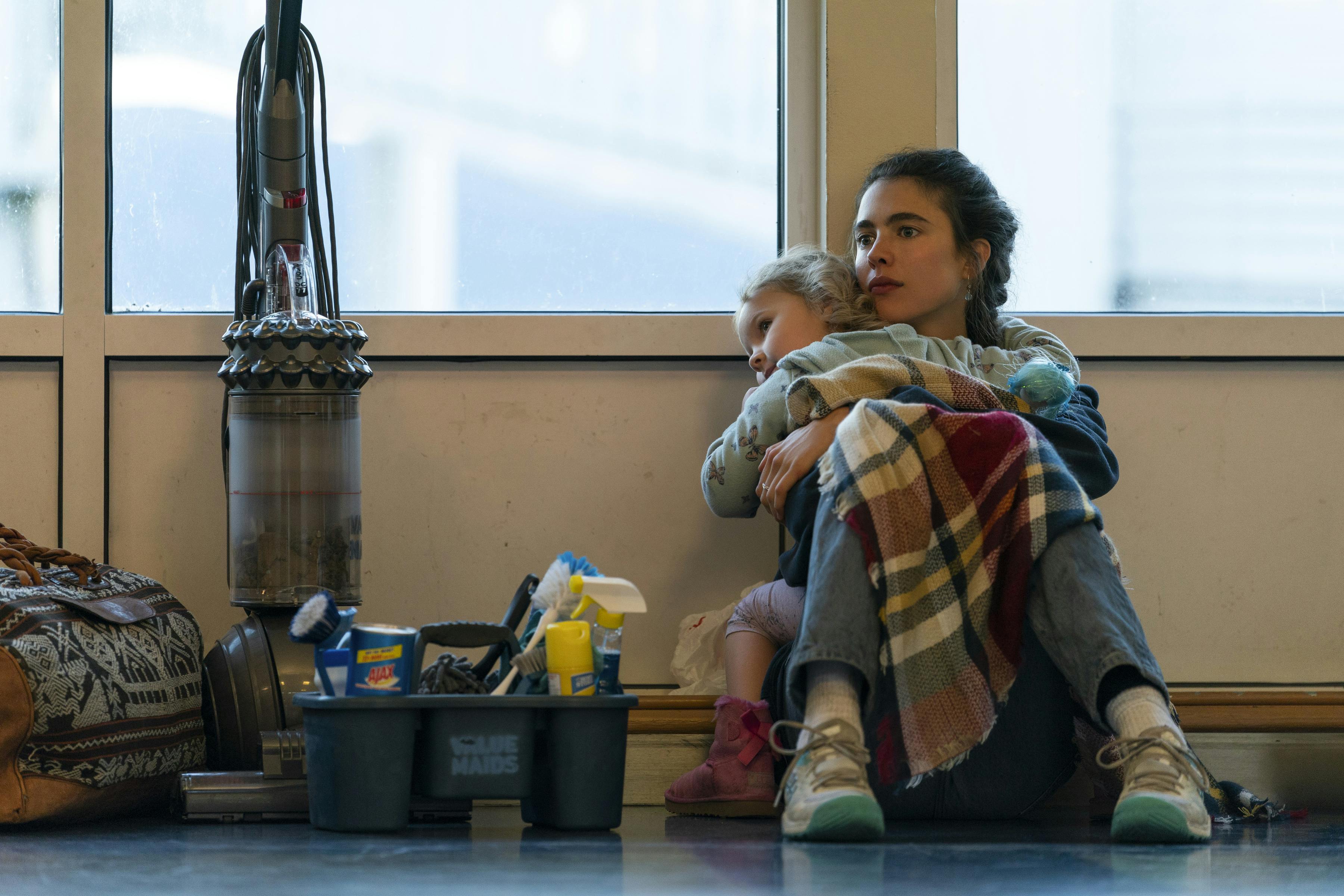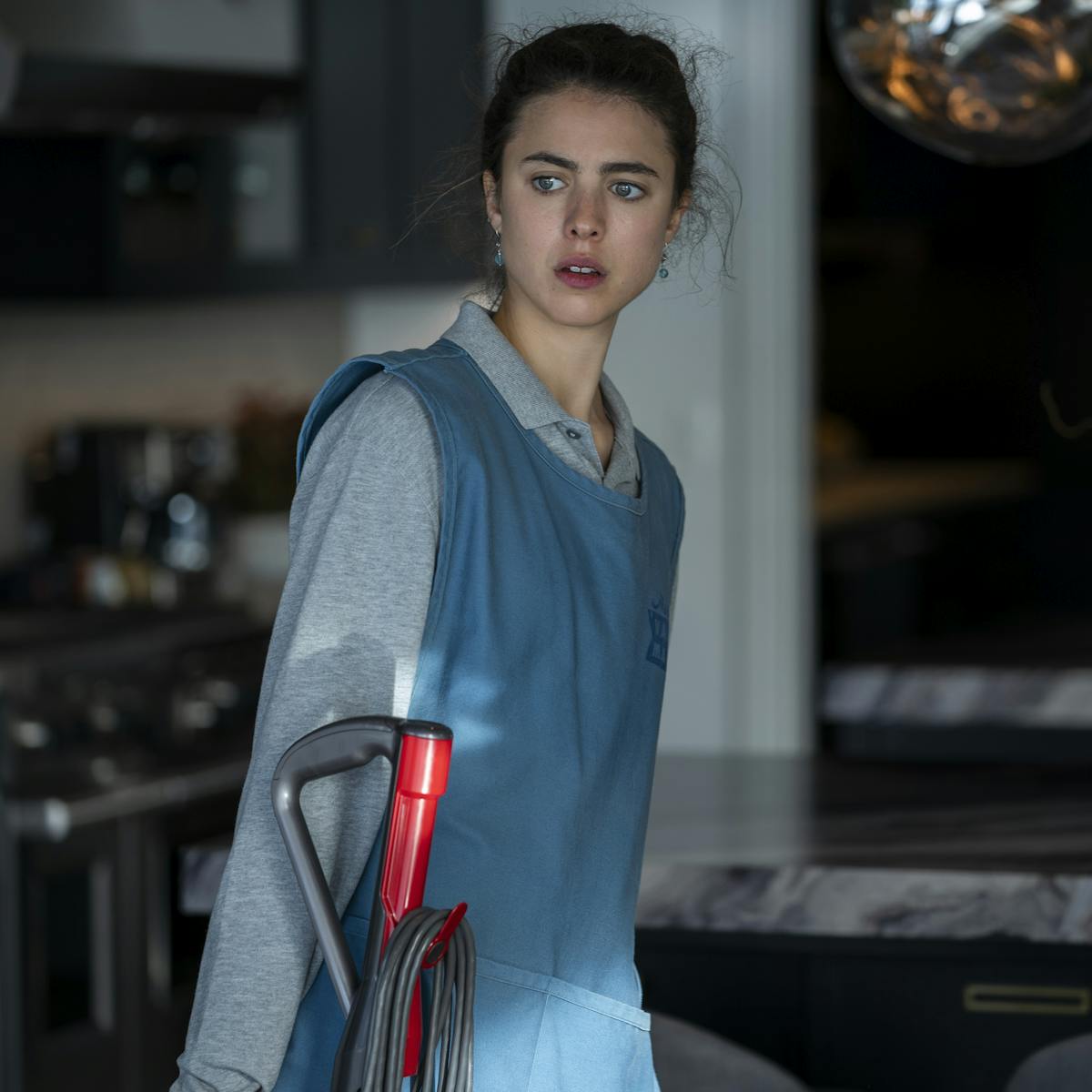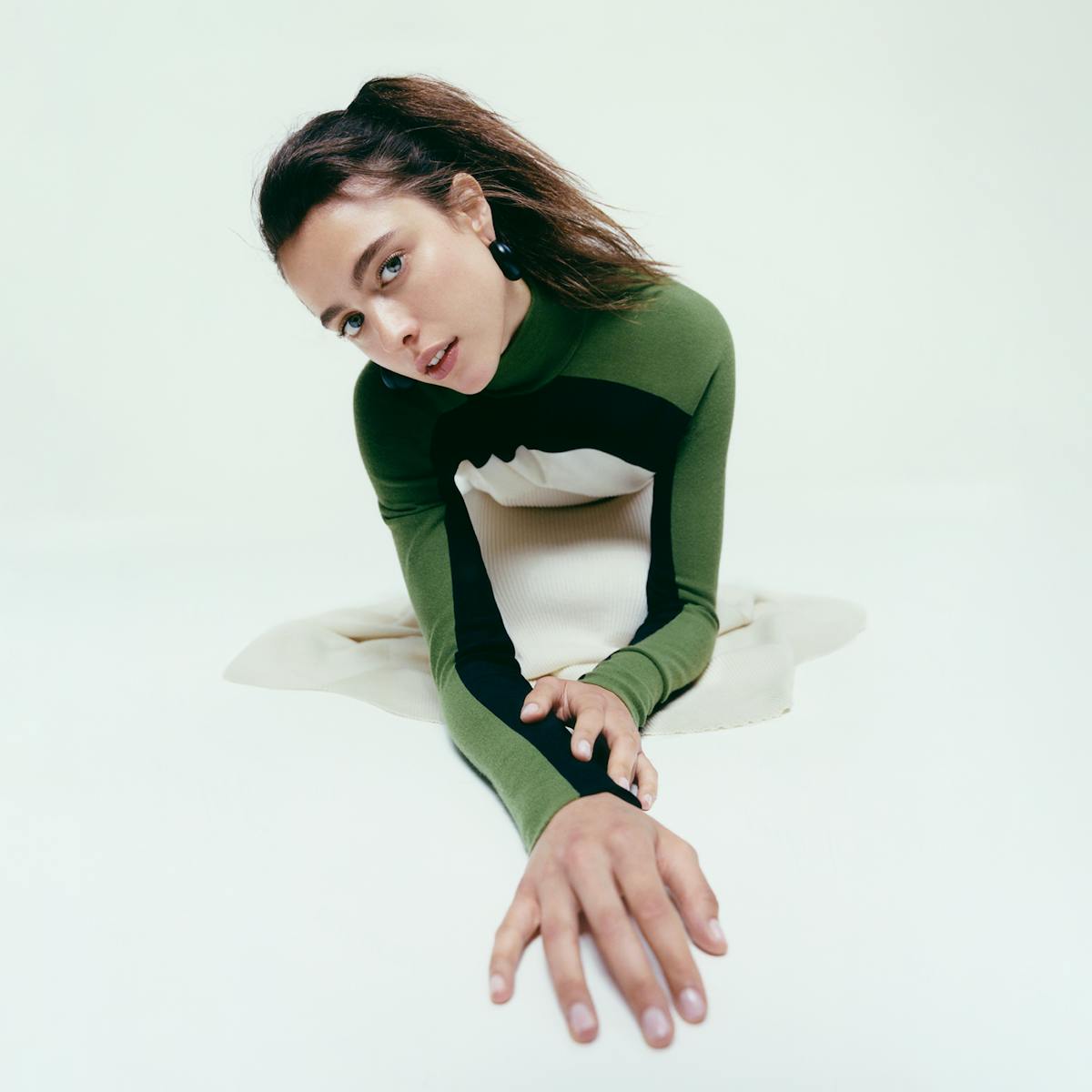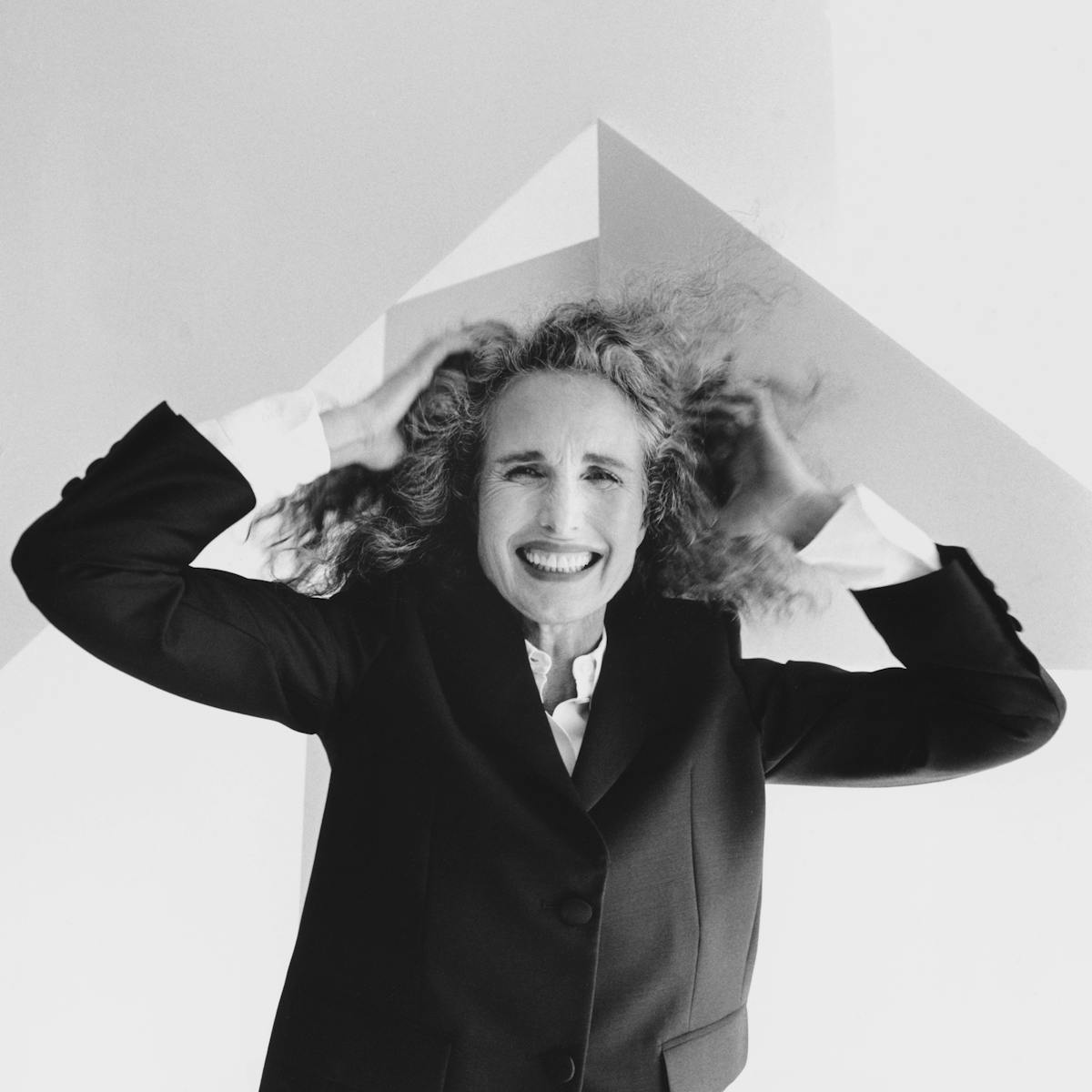The creator of the hit series MAID reflects on motherhood on- and offscreen, casting Margaret Qualley, and what kinds of stories she’s drawn to tell.
When she was first approached about MAID, Molly Smith Metzler had already worked on a few projects lauded for their portrayal of people, particularly women, navigating U.S. systems — T.V. sensations Orange Is the New Black and Shameless, and the 2017 play Cry It Out. Director and executive producer John Wells, with whom she’d spent three seasons in the Shameless writer's room, and executive producer Margot Robbie had just won the rights to Stephanie Land’s memoir, Maid: Hard Work, Low Pay, and a Mother’s Will to Survive, and knew that Metzler’s past work and sense of humor made her the perfect candidate to tell this heartfelt and complicated story.
“I think I was in the right place at the right time,” Metzler humbly describes. “I was right in the [Shameless] office, but I had also just written a play called Cry It Out, which had a really great production in Los Angeles and is about mothers and socioeconomics in America.” Metzler read the New York Times bestselling book that night and immediately agreed to sign on as writer and showrunner.
MAID follows young mother Alex Russell (Margaret Qualley), who struggles to provide for and protect her toddler (Rylea Nevaeh Whittet) in the face of abuse and poverty. In the first 28 days of its release, the 10-episode limited series was binged by close to 67 million households and has since been nominated for three Emmys, including Outstanding Writing for a Limited Series for Metzler, with audiences drawn to the nuanced writing, accessible performances, and complicated characters. Metzler deftly balances heavy subjects — domestic abuse, living below the poverty line, mental illness — with empathy and humor, resulting in a kind, hopeful, and human portrayal of issues so many people face today.
In conversation with Queue, Metzler considered how humor and casting helped her avoid melodrama, and how MAID offers a new vantage point on motherhood. The following has been edited for clarity.
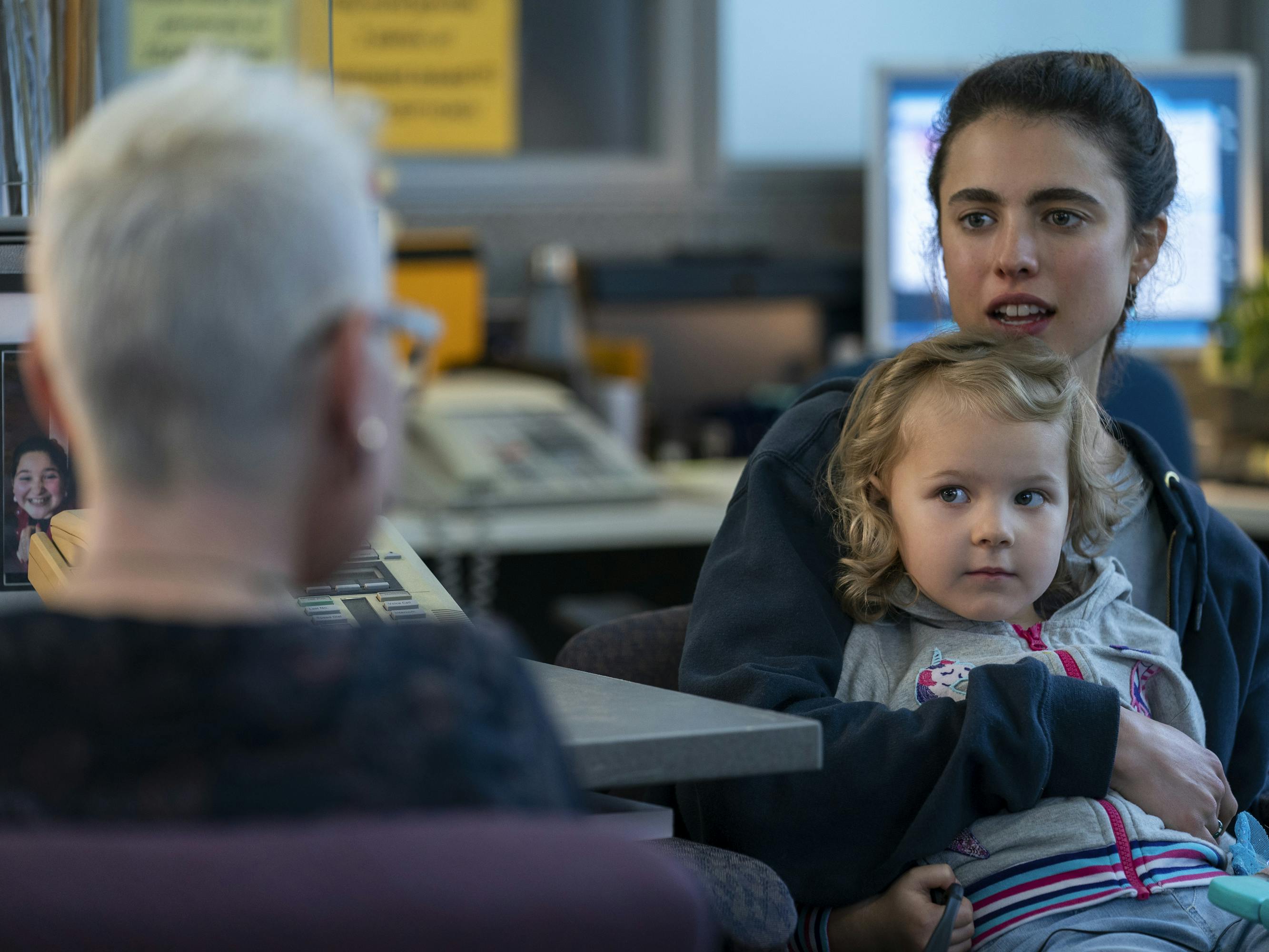
Alex Russell (Margaret Qualley) and Maddy Boyd (Rylea Nevaeh Whittet)
Brookie McIlvaine: You’ve written for shows like Shameless and Orange Is the New Black, and your production company, Quiet Coyote, is interested in telling similar stories about women struggling within systems. What makes you gravitate to these subjects?
Molly Smith Metzler: I write about class in America almost unintentionally. It’s always in everything I write; it’s just a huge interest of mine. I’m also a playwright and all of my plays tend to be about class in America. What I mean by that is the “haves” and “have-nots” and how that gap is widening in this country. It feels very contemporary to me; it’s a great opportunity to have a lot of fun and embrace the comedy of just how fucked America is right now.
The source material is so emotional and difficult, but the actors make it safe — and, as you said, funny — to go there. How did you cast the roles of Alex, Maddy, Paula, and Sean?
MSM: With a book like Maid that’s about poverty, generational trauma, the lack of socio-support in this country if you live below the poverty line — when you’re taking all those subjects on, it’s very somber. For the television show, I wanted to go at those subjects and represent them accurately onscreen. But also, I know that our audience would turn off after the first episode if it was just somber. So part of casting was making sure that we were embracing all the opportunities to have some fun, lightness, a point of view that had some gallows humor. These are people that you wanted to be with, even though the subject was tough.
Alex is in every single scene across 10 episodes, so we knew that casting her was everything. She carries the show. When we met Margaret Qualley, immediately we knew it was her. Part of it is that she has an incredible sense of humor and we also felt like she would elevate the character and make [her] even more accessible.
The same is true with Nick Robinson, who is the second person we cast. Sean is our villain, but he’s the most likable villain. He’s so warm and rich and textured and layered, but he’s also really messed up, for good reason. We explore his own cycle of trauma and abuse that he’s stuck in in his own life. So it was very important to cast someone that we cared about, who we could have empathy for, who we wouldn’t view as just one thing because Sean’s a really complicated guy. And Nick Robinson does all of that effortlessly. He is immediately complicated and alive and you want to just hug him. And that was a great quality for Sean to have. He is also word-perfect, which is a delight as a writer. We crafted this character together.
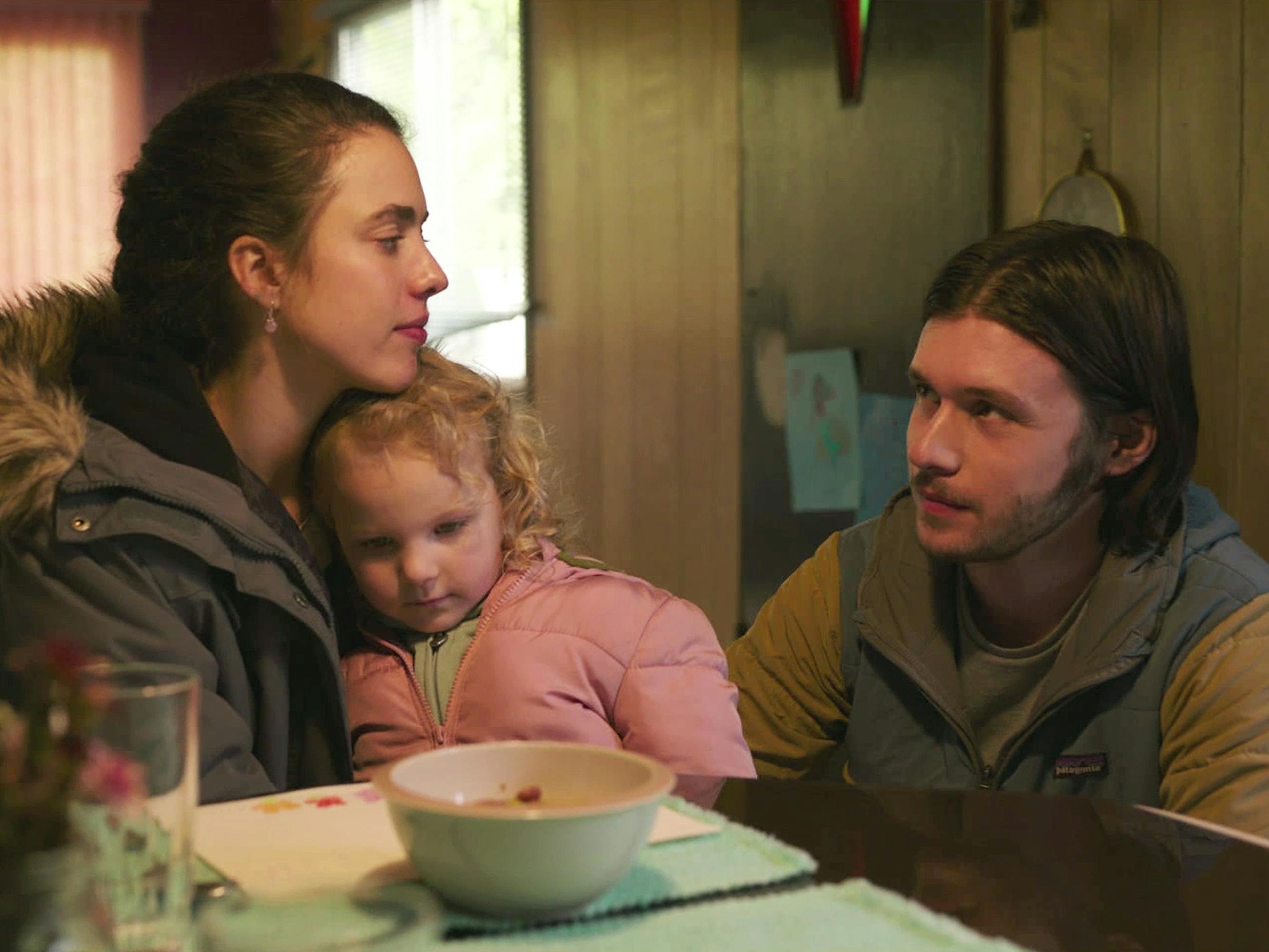
Alex Russell (Margaret Qualley), Maddy Boyd (Rylea Nevaeh Whittet), and Sean Boyd (Nick Robinson)
You shot, filmed, and produced MAID on a freezing island while the story you were telling was more relevant than ever, with spiking rates of abuse and poverty during COVID. How did you balance all of the different roles and how did you protect your mental health and the mental health of people around you?
MSM: What a great question. I think the answer is: I didn’t protect myself or my mental health. I think I speak on behalf of everyone when I say, after nine months of shooting, we all went home very, very tired. The pandemic hit when we were halfway through the writing process, but 100% of our shoot was during the pandemic. Shooting is brutal, no matter what, but to do it during the pandemic, when we had to talk about a scene from six feet away, masked, it made the creative process a lot harder.
Also, it just made humanity a lot harder. It made being friends a lot harder. We couldn’t go out and get a beer after leaving set. It was really trying and I tried to just concentrate on the work. We were so grateful to have the work. So many of our friends were on shows that were shut down and here I was getting to write this magnificent story, my first time showrunning. I just tried to stay really grateful, set a good example, be professional and positive. But to answer your bigger question, I went home sad and tired, and I think everybody [else] did [too].
Motherhood cuts through the shit and empowers you as an artist: You find your voice and you find it fast.
Molly Smith Metzler
I love MAID because it portrayed these complicated, impossible issues with honesty, but also with hope. How did you tell such an emotionally draining story, but maintain a sense of hope in the narrative?
MSM: I love that question, and it was top of mind for the two years that we worked on MAID. Every day was, How do we keep this a love story between mother and daughter? We have all these other subjects we want to tackle, but we did not want it to feel like an N.P.R. think piece. We wanted it to feel like a very human love story between mother and daughter. And getting that right in the writing was really important: Alex’s joy is her daughter. Everything’s for her daughter. And that beautiful relationship onscreen between Margaret and Rylea was something that Margaret worked very hard to establish: She spent any time she had off on the weekends with Rylea — they went for ice cream, sang songs — and she really bonded with that little girl. Their chemistry onscreen feels real because it is. I was astounded that Margaret was able to do that; she’s not a mom, so I don’t know how she figured out how to do it.
I read an interview you gave about how motherhood helped you advocate for yourself in your career, and it’s at the center of MAID. How has motherhood changed your approach to storytelling?
MSM: I feel like people treat motherhood as a soft subject, and it’s actually a Herculean subject. First of all, this is a very hard country to be a mother in because of the way we treat single parents who live below the poverty line, which MAID explores. Right now, for instance, with all of the stuff happening with abortion — we do not have a government system set up to support motherhood. We don’t have maternity leave, we don’t have protection for single parents, it’s just a big mess. [Motherhood] is a subject that has some teeth. It’s not soft and it’s a kind of heroic gesture to become a mom and protect your child in this climate.
And then, becoming a mom cuts through the shit. Suddenly I really cared more about what I was saying, what I was doing with my life, what my point of view was as an artist. All of the stuff that I’m talking about, writing about, is for my daughter. And I think with a show like MAID I really had that in common with Alex; my reason for living is my daughter, and I want to model strong behavior for her. But I also want to say something important about the time that we’re living in. Motherhood cuts through the shit and empowers you as an artist: You find your voice and you find it fast.
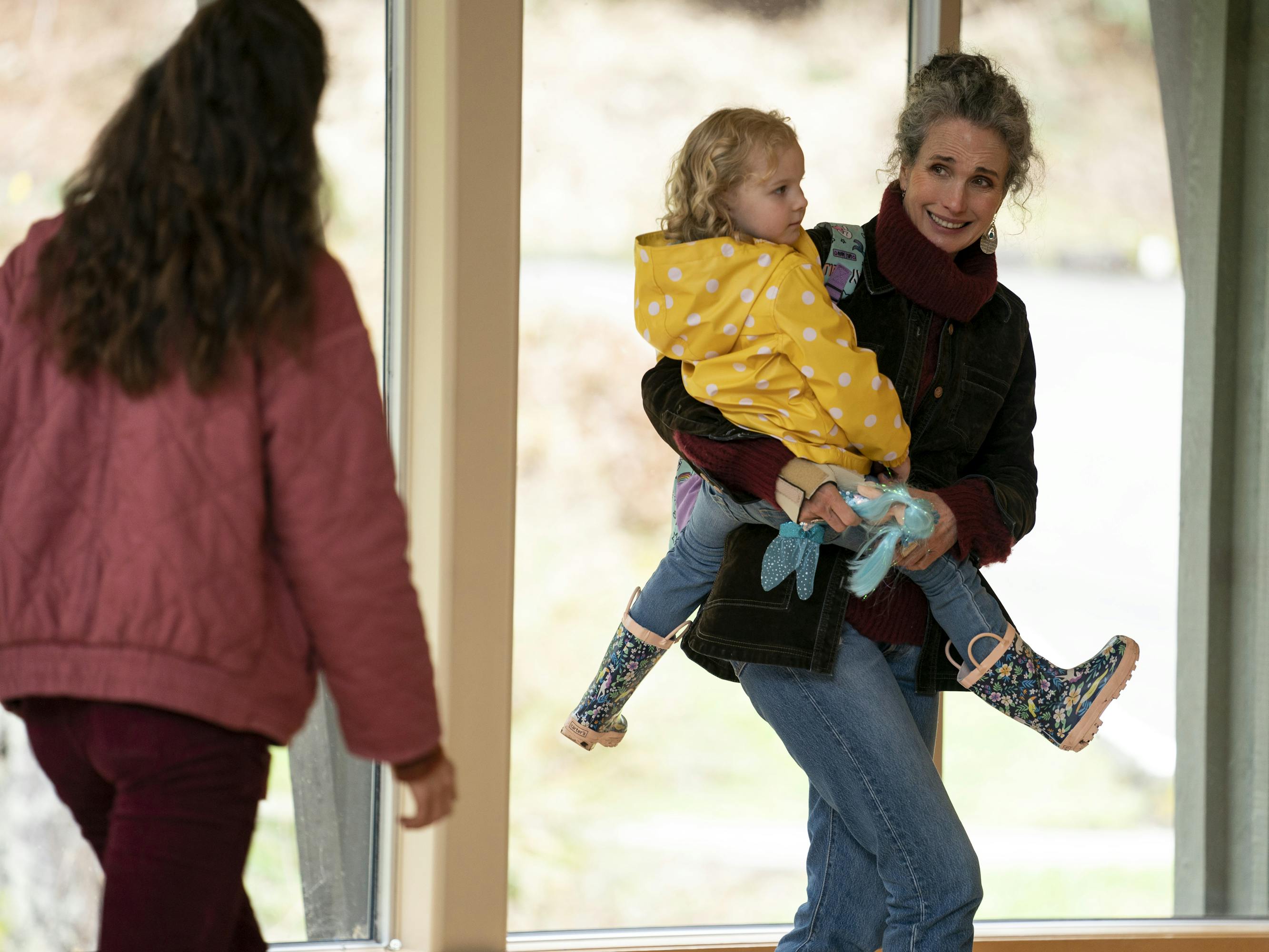
Alex Russell (Margaret Qualley), Maddy Boyd (Rylea Nevaeh Whittet), and Paula Langley (Andie MacDowell)
You’ve written for so many mediums. Do you have a favorite? And looking forward, to all that’s to come with Netflix and beyond, what types of stories are you most interested in telling?
MSM: Well, it’s hard to have a favorite because they’re so different. But I will say that my favorite part of the process is the same across all genres: I like the thinking process. I call it the “jigsaw puzzle stage” when, for weeks, I’m thinking about the story and breaking it down in my head and it looks like I’m chilling out because I’m doing puzzles the whole time, but that is part of the process — really connecting to the character, letting the character talk to me and tell me what they want to do. So that’s the same in everything.
The thrill of television is that you’re creating it on the fly a lot of times. I was writing a lot of MAID while we were shooting it, and so, lucky me, I got to watch Margaret and Andie MacDowell [Qualley’s real-life mother, who plays Alex’s mother, Paula] shoot a scene and go home and write another scene for them, knowing who they were as artists, knowing their style, knowing what they could do, and wanting to challenge them as well. So that part of television is very thrilling; it’s a true collaboration in that sense.
The stories I want to write are always going to be stories where drama and comedy dance together. I’m never going to write a straight-up searing drama, and I’m probably never going to write a Boulevard comedy. I really like to watch and I really like to write stories that have pathos and a ton of humor. I’m looking for a character who’s maybe in an extreme situation and going through something horrible, but has a great sense of humor, a point of view that lets us in. I like stories that ask really hard questions. I think MAID asks some hard questions about abuse and the cycles of abuse. I know, for me, there’s that moment in Episode 8 where we think she’s going to go back to Sean, and I felt relieved because you almost forget who he is. Then he shows you in Episode 9, and I think it raises some really hard questions. If there’s a challenging question to ask with a project, I get really excited.
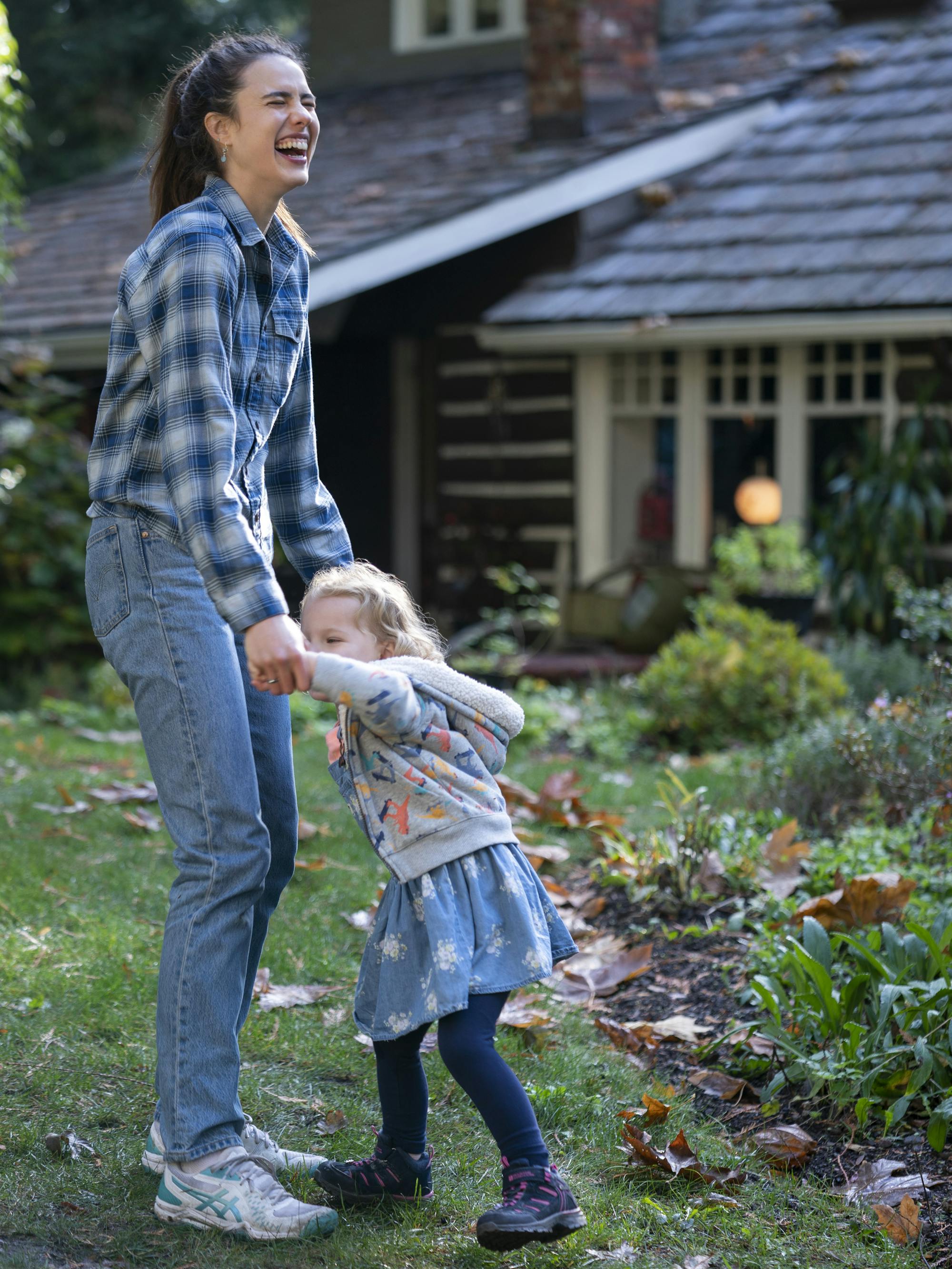
Alex Russell (Margaret Qualley) and Maddy Boyd (Rylea Nevaeh Whittet)
